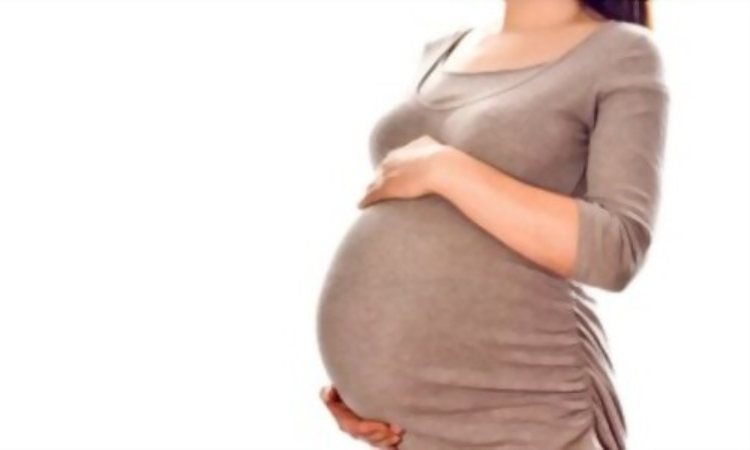Hunger pangs and aversions to certain foods are common pregnancy symptoms. While morning sickness is a common cause of not feeling like eating in the first trimester, it’s not the only thing to blame. Although the first and third trimesters are especially formative for the developing fetus, care must be taken throughout the entire pregnancy to ensure the baby is healthy and develops normally. It’s crucial to gain weight at a healthy rate after the first three months.
If you haven’t had an appetite by the beginning of your second trimester, or if you haven’t gained the recommended amount of weight by the end of your third trimester, you should talk to your doctor. Let us go through nine points as to “what to do when you don’t feel like eating during pregnancy.”
Why Does One Lose Appetite During Pregnancy?
With all the changes your body is going through, it’s natural for your appetite to swing back and forth. Hormonal shifts, shifts in mood, morning sickness, nausea, and other digestive issues can all contribute to a loss of appetite. Every trimester has its reasons.
Let’s look into the different causes of loss of appetite during all three trimesters of pregnancy:
Loss of appetite in the first trimester
Morning sickness causes a loss of appetite. If you get sick after eating, you might stop wanting to eat altogether. If you have a fear of getting sick, you might only eat when necessary. Also,
- An increase in estrogen during pregnancy has been linked to decreased food intake, suggesting that this may be the cause of the common pregnancy symptom of loss of appetite during this time1
- The first week of pregnancy is a particularly sensitive time for the mother, who may experience increased nausea and sensitivity to odors. Around 80% of pregnant women experience nausea and vomiting during the first trimester2
- Some pregnant women even experience a metallic taste in place of their normal sense of taste during their pregnancy. Aversion to food results from this
Related Reading: Top 11 Precautions To Take In The First Trimester Of Pregnancy
Loss of appetite in the second trimester
This trimester is comparatively smoother as morning sickness starts to settle down. However, some women continue to experience nausea, vomiting, loss of appetite, and food aversions well into the second trimester, leading to loss of appetite. Also,
- Sluggish digestion is the usual culprit for a lack of hunger in the second trimester of pregnancy. The digestive system is stressed when the uterus, located in the lower abdomen, grows in size. Because of this, you might even get constipated and won’t feel like eating
- The level of progesterone also surges resulting in constipation and reducing hunger during pregnancy3
- Some medications considered safe during pregnancy may have unfavorable side effects, such as decreased appetite. Some antidepressants that are used to treat pregnancy-induced depression are an example4
Related Reading: The Top 10 Precautions To Take In The Second Trimester Of Pregnancy
Calculate Due Date With LMP
Loss of appetite in the third trimester
During pregnancy’s third trimester, expectant mothers often experience the most uncomfortable and taxing conditions. It can be difficult on both a physical and emotional level. There are numerous causes of appetite loss in the third trimester, including:
- In the third trimester, many pregnant women report having fewer cravings and a reduced appetite. The major cause is the increasing fetus pressure on your abdomen. Simply put, there is less space for food
- Frequently experiencing heartburn or indigestion during the third trimester can also result in loss of appetite. Pregnant mothers are also averse to citrus and spicy foods during this phase due to heartburn
- Increased progesterone levels cause constipation in late pregnancy, which in turn causes a loss of appetite5
- Shortness of breath is another cause of loss of appetite during the third trimester of pregnancy. When breathing is difficult, eating can be a challenge. It can adversely affect the expecting mom’s desire to eat
- Due to the impending delivery of the child, the third trimester might be filled with anxiety and uncertainty. Moms may have emotional ups and downs throughout this trimester. Their body experiences emotional and psychological changes as a result of anxiety. These changes often influence the stomach and digestive system, resulting in the loss of appetite6
Related Reading: 8 Tips To Cope With Anxiety During Pregnancy Third Trimester
9 Things To Do When You Don’t Feel Like Eating During Pregnancy
Pregnant women should eat healthily to fuel their babies’ rapid development. In the early stages of pregnancy, it is not important to gain inches; however, as the pregnancy progresses, it is important for both the mother and the baby to gain weight. This helps the baby grow and develop properly. A decrease in appetite is one of the things that can disrupt the normal progression of pregnancy. Let’s look at the nine answers to the question, “What to do when you don’t feel like eating during pregnancy?”
1. Prioritizing foods

Even if you don’t feel like you can eat full meals, there are some foods you can prioritize. These will make sure that both you and your baby get the nutrition you need.
The following list contains a number of foods that are both easy to prepare and gentle on the digestive system
- Healthy soups
- Plain broths
- Wholesome smoothies
- Snacks high in protein, such as hard-boiled eggs, chicken salad, roasted chickpeas, cheese, crackers, etc.
- Vegetables that are bland yet are high in fiber, such as steamed or raw baby carrots, sweet potatoes, green beans, and raw spinach salad
- Simple, sweet snacks like fresh berries, oats, dried fruit, etc.
Related Reading: 12 Signs Of Healthy Baby In Womb- Trimester Wise
2. Avoid strong spices
According to studies, spicy food suppresses appetite and boosts energy expenditure. So, it’s best to avoid garam masala and chili peppers when expecting a child.
3. Do not stop eating
Even if you don’t feel hungry, it’s still crucial that you take in some calories and nutrition at all points of pregnancy. In other words, if you feel queasy, don’t let the thought of throwing up prevent you from eating.
4. Always take the vitamins
Prenatal vitamins are critical throughout pregnancy. These include vitamins, calcium, folic acid, iron, multivitamins, and so on. This will guarantee that your nutritional intake is not jeopardized as a result of a lack of appetite.
5. Try to have foods at varying temperatures
The temperature of the food has an effect on appetite. For instance, hot food may reduce appetite because it prolongs your feeling of fullness7. Pregnancy is a time of experimentation; typically, women who prefer hot foods will prefer cold or chilled foods and vice versa.
6. Avoid foods that can aggravate nausea
There are certain foods that can induce nausea, so it is best to avoid them regardless of how healthy they are. It can be difficult to eat too many veggies at this time, but it is preferable to eat a few fruits instead because they help the expectant mother maintain her energy.
7. Replace your caloric intake with liquids
Rather than forcing yourself to chew food when you’re not particularly hungry, getting your calories by drinking them could be more of an incentive to eat more. Drinking your calories can be as simple as substituting high-calorie drinks for some of your meals. Meal-replacing drinks include smoothies, milkshakes, and juices. If you want to make them healthier, try using ingredients like fruit and vegetables. You can enhance the calorie and nutritional content of the drink by adding protein-rich ingredients like whole milk, yogurt, or protein powder.
Related Reading: Energy Drinks During Pregnancy – Are They Safe?
8. Make use of herbs and spices.
Some foods take longer to digest than others and can cause gas, both of which can make you feel bloated and less hungry.
Carminative herbs and spices are a category of seasoning that can help alleviate gas and bloating while also stimulating hunger. In addition, they can increase bile production, which aids in the breakdown of fats8. Mint, ginger, fennel, peppermint, black pepper, coriander, and cinnamon are carminative9.
9. Exercise well

Pregnant women who exercise regularly have a better chance of a healthy pregnancy and a smooth delivery. Besides that, even moderate or low-intensity physical activity, like going for a walk, can make you hungry almost immediately say studies.
How Does The Loss Of Appetite Affect Your Pregnancy?
The mother’s health and the fetus’s development are both negatively impacted by the mother’s inability to eat. At different stages, the fetus gets affected in different ways. Let’s get a brief synopsis of the effects of loss of appetite in each trimester of pregnancy and also understand “what to do when you don’t feel like eating during pregnancy.”
First trimester
This is when the egg develops into an embryo, and the first eight weeks are when the brain, spine, nose, mouth, and eye muscles begin to form. The development of all major organs has already begun by the time this trimester is over, but they are still forming. Bones and muscles have begun to form, and the genitalia has begun to expand.
How loss of appetite affects the First trimester-
The first trimester does not show visible changes in the external look of the mother. However, this is the time when the foundation of the embryo is laid. Having nausea and morning sickness can hamper the growth of the baby.
- Most of the hormonal changes take place that can result in morning sickness that can affect the intrauterine growth of the baby10
- Nausea and vomiting also result in low weight gain during pregnancy as well11
- Studies show that adverse birth results are related to loss of appetite in pregnancy as well12
- The risk of pregnancy loss is higher in the first trimester
Related Reading: Loss Of Appetite During Pregnancy- 1st Trimester- Reasons And Tips To Cope
Second Trimester
At this point, most women report feeling much better, as morning sickness has subsided. As the baby gets bigger, the belly expands and becomes more noticeable.
- At this stage, your baby’s immune system is developing12
- This is the time when the baby’s organs are fully developed
- Small hair has come on the baby, the baby can swallow and hear as well, and the kicking also starts in this trimester only.
The fetus’s growth and development require the highest levels of nutrition during this time. Therefore, it is of the utmost importance to eat right so that the baby can get the nourishment it needs.
How Loss of appetite affects the Second trimester
The baby will be nearly 14 inches and weigh 1 kg by the end of the second trimester, but if there is a loss of appetite, the growth can be hampered.
- At this time, the fetus needs good calcium intake for the development of strong bones as well as muscles13
- This is also the time when the baby’s brain develops so it is ideal to have Omega 3 Fatty acids for the proper development of the brain of the fetus14
Loss of appetite during this trimester is due to heartburn and constipation, so it is best to keep oneself hydrated, eat fiber-rich foods to aid digestion, and stay away from spicy and acidic foods.
Related Reading: Loss Of Appetite During Pregnancy- 2nd Trimester- Reasons And Tips To Cope
Third Trimester

During the third trimester of pregnancy, the mother’s belly has expanded to its full size. This is marked by indigestion, acidity, and heartburn, which can result in appetite loss. Apart from this, the developing fetus at this time has developed bones, a head-down position, and functional organs as well. It is hence important to eat well, be active, and take care of oneself, as in the later stages or after week 37, a baby can come any time.
How loss of appetite affects the third trimester
Undernutrition results in many complications, like low-birth weight, poor growth of the fetus, etc.as per this source
- If there is a loss of appetite or poor appetite in pregnant woman, there is a high risk of anemia, preterm birth, etc.15
- It is important to be active and stress-free at this time as stress can induce preterm labor and other complications16
- Loss of appetite can even result in behavioral issues, low mental functioning, etc.17
During pregnancy, the mother’s primary concern should be for her unborn child. Both the mother and the developing child benefit from a nutritious diet. There is no need to “eat for 2” while pregnant. Since the mother is the only one who can feed the baby, she needs to make sure she eats a healthy, well-balanced diet. It is not necessary to eat twice as much; what is important is the quality of the food consumed.
Therefore, it is crucial to avoid anything that could cause the mother to feel nauseous or lose her appetite so that she can savor her food, maintain her usual level of physical activity, and have a healthy pregnancy. As the old adage goes, “healthy babies come from healthy mothers.”

